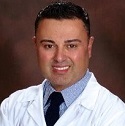Task Forces in the Spotlight
Two task forces were recently developed to support the mission of the Stroke ISIG, the Pharmacy Task Force and the Transitions and Continuity Task Force. To learn more about the purpose of these groups and ways to participate, please contact the task force co-chairs.
PHARMACY TASK FORCE INTERVIEW
with Co-Chair, Alex Jawharjian

Q. Why did you see a need to start this task force?
A: As the role of the pharmacist has evolved in inpatient care settings to be more integrated with multidisciplinary teams, Rehab pharmacists find themselves responding to specific needs to this patient population and in the process creating a niche for pharmacy that is not readily discussed or evaluated in general pharmacy discourse. We felt compelled to start this group to consolidate pharmacy knowledge in Rehab medicine, to serve as a reference to those entering our field of work and to promote our profession in the segment of the industry that we serve.
Q. How does this task force contribute to the goals of the Stroke ISIG?
A: The Pharmacy Task Force contributes to the goals of the Stroke ISIG by complementing the multidisciplinary team approach in taking care of stroke patients.
Q. What are the directions and goals you see for this task force in the coming year?
A: Our priority is to increase pharmacist membership in ACRM and engaging pharmacists in this field.
TRANSITIONS & CONTINUITY OF CARE TASK FORCE
Interview with Molly Trammell

Q. Why did you see a need to start this task force?
A. Stroke is a leading cause of long term disability. Patients who have a stroke are at higher risk for recurrent stroke and readmission to the hospital for resulting comorbidities. With increased acuity during transitions of care and decreased lengths of stay, it is imperative that we improve the way we manage the education, and interventions with these patients to empower them to self-manage their health care and improve their outcomes.
Q. How does this task force contribute to the goals of the Stroke ISIG?
A. The Transitions and Continuity of Care Task Force is working on reviewing current best practices to improve continuity across the continuum across the nation. Therefore, facilitating awareness, quality improvement, and research recommendations. The task force will also pursue presentations at national conferences.
Q. What are the directions and goals you see for this task force in the coming year?
A. Advocate for stroke rehabilitation within ACRM and other relevant organizations
- Review and disseminate research information relevant to transitions and continuity of care
- Submit one conference proposal for the annual conference, fall 2019
- Update membership roster at least annually
- Facilitate communications and networking among task force members and other task forces/ISIGs to identify potential outcome measures for opportunities for collaborations
- Host a Virtual Happy Hour
Q. Is there anything else you feel is important about the task force that you would like people to know?
A. We feel this task force addresses a need across diagnoses and other ISIGs, not just stroke. We need to be innovative and advocate to improve these transitions to impact patient outcomes and empower patients to manage their own health care following discharge.










